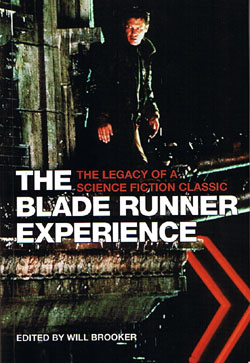 The works of Philip K Dick have always held a special place in the hearts and minds of sci-fi fans. His stories of skewed perceptions and false realities offered mind-bending alternatives to more pedestrian science fiction. Many of his stories have been turned into films, some better than others. Which isn’t to say the films weren’t good but, like the works of William Burroughs, his stories are often difficult to recreate visually while retaining the complexity of the novels.
The works of Philip K Dick have always held a special place in the hearts and minds of sci-fi fans. His stories of skewed perceptions and false realities offered mind-bending alternatives to more pedestrian science fiction. Many of his stories have been turned into films, some better than others. Which isn’t to say the films weren’t good but, like the works of William Burroughs, his stories are often difficult to recreate visually while retaining the complexity of the novels.
Probably the best-known adaptation of a PKD story is Blade Runner. It certainly deviated from the original story but it was probably one of the most influential sci-fi films of the last quarter century. Not so much from the story but from the visual styling and Ridley Scott’s direction. It has also been the subject of much debate and discussion among fans and academics, possibly matched only by those of the meaning of The Matrix, and the subsequent discussion of what went wrong with the sequels.
A lot of deep thoughts about Blade Runner, by some very articulate academics from some of the best media and film schools on both sides of the Atlantic, have been collected together in a book called The Blade Runner Experience: The Legacy of a Science Fiction Classic. This is a serious treatise on a wide range of diverse facets of the movie, from Philip K. Dick adaptations to fandom, from femmes fatales to cities of the future. The book, edited by Will Brooker, doesn’t just cover the film or Dick’s original story, but also looks at the videogame and the series of sequel novels by K. W. Jeter (which can be seen as glorified fan fiction).
It isn’t a light read or filled with glossy pictures (look out for a book on PK Dick films from Titan due out soon), but if you want to stimulate the grey matter and arm yourself with some intellectual ammo for a future geek session this is definitely worth a read. For students of filmmaking it will give you an insight into the number of possible themes a well-made movie can engender.
The book is available directly from the publishers, Wallflower Press, in their film studies section, along with other sci-fi film titles, some of which have already been reviewed here.
